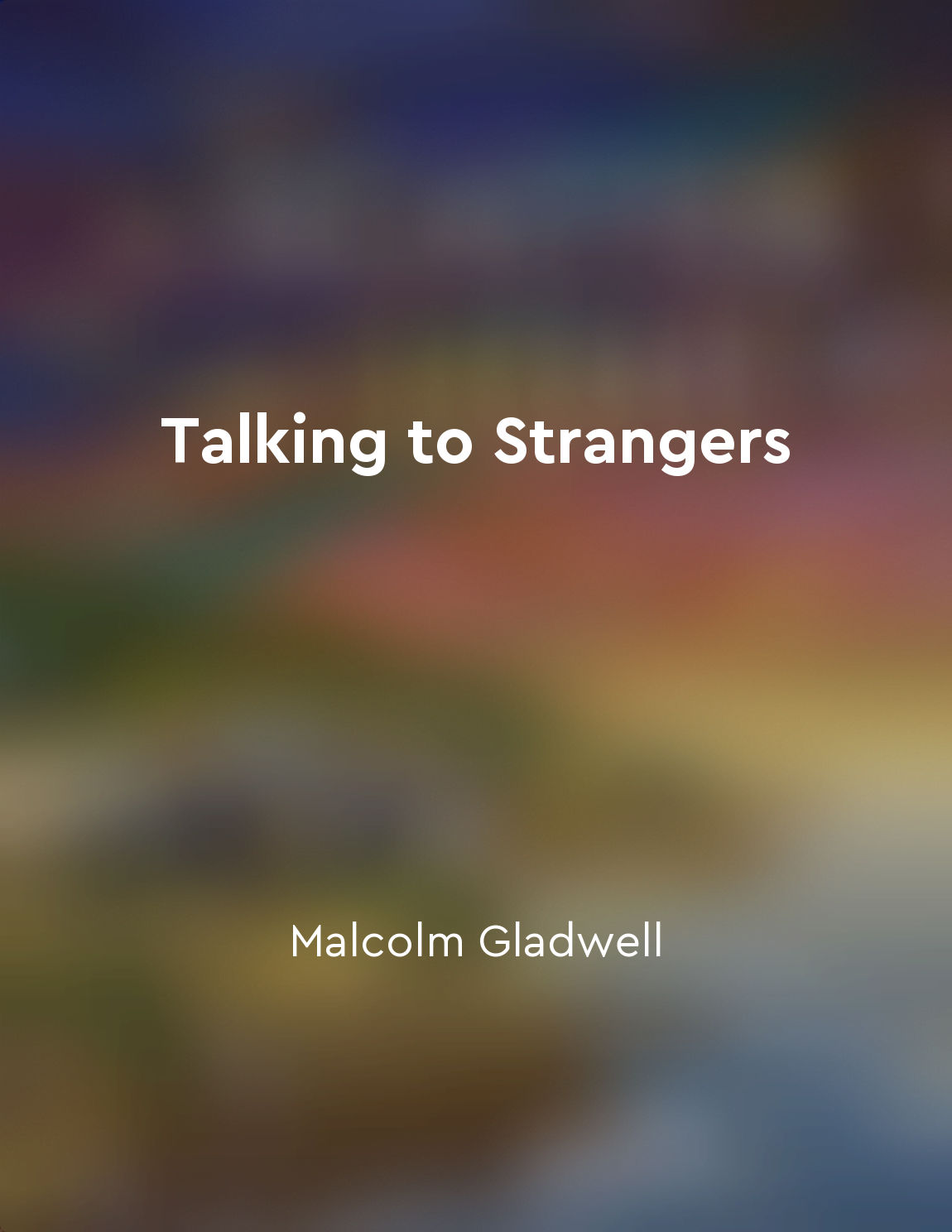We rely on signals to form impressions of strangers from "summary" of Talking to Strangers by Malcolm Gladwell
When we encounter strangers, we instinctively look for signals to help us make sense of who they are. These signals can come in various forms - from body language and facial expressions to the way they dress or speak. We use these cues to form our initial impressions of others, often without even realizing it. These impressions, however, can be misleading. We tend to believe that we can easily decode these signals and accurately understand someone's intentions or character. This is what psychologists call "default to truth." We default to truth because it makes life easier. It allows us to navigate the world without constantly questioning others' motives or integrity. But this default can also lead to misunderstandings and misjudgments. The truth is, these signals are not always reliable indicators of a person's true nature. People can be skilled at masking their true feelings or intentions, making it difficult for us to see beyond the surface. Moreover, cultural differences can also impact how we interpret these signals. What may be considered a friendly gesture in one culture could be seen as offensive in another. This can further complicate our ability to accurately gauge someone's character based on these signals alone. The problem is compounded by the fact that we often overestimate our ability to accurately read others. We believe we are better at detecting deception or hidden emotions than we actually are. This overconfidence can lead us to make snap judgments about people that are not based on solid evidence. This is particularly true in high-stakes situations, where the consequences of misinterpreting someone's signals can be dire. Take, for example, the case of Amanda Knox, who was wrongfully convicted of murder based on flawed interpretations of her behavior. Her behavior after the murder was seen as suspicious, when in reality, she was simply reacting to an extremely stressful situation. This is just one example of how relying on signals alone can lead us astray when trying to understand strangers. In order to avoid falling into this trap, we need to approach our interactions with strangers with a healthy dose of skepticism. We should be aware of the limitations of relying on signals alone and be open to the possibility that our initial impressions may be inaccurate. By doing so, we can hopefully avoid the misunderstandings and misjudgments that can arise from relying too heavily on signals to form impressions of strangers.Similar Posts

Understand the impact of nonverbal cues
Understanding the impact of nonverbal cues is essential in effectively reading people like a book. Nonverbal cues play a signif...
Delivers justice with fiery determination
This man was born in Mississippi, but he grew up in a place that didn't exist. It was a valley hidden between the mountains of ...
Psychopathy is linked to abnormalities in brain structure and function
Research in the field of psychopathy has shown that individuals with this personality disorder exhibit differences in brain str...
Reading body language accurately requires observation and practice
To accurately read body language, one must develop the skills of observation and practice. Observing how people use their bodie...

Understanding body language can improve relationships and interactions
Body language is a powerful tool in our interactions with others. It is a silent language that can convey emotions, thoughts, a...
Criminal justice systems are based on mythology
The idea that criminal justice systems are based on mythology is not about fairy tales or ancient stories. It refers to the myt...
Recognize the difference between sincere and insincere gestures
The ability to distinguish between sincere and insincere gestures is a crucial skill in navigating social interactions. People ...
Practicing active listening boosts communication skills
Engaging in active listening is a powerful tool that can significantly enhance your communication skills. When you actively lis...
Maintain boundaries while being approachable
To build rapport with others, it is essential to strike a delicate balance between maintaining boundaries and being approachabl...
Lies have consequences
Lies are never harmless, never without repercussions. They have a way of creeping into every corner of our lives, weaving thems...

